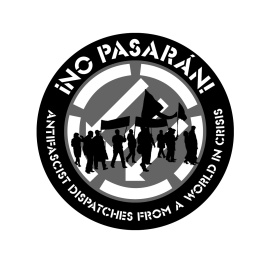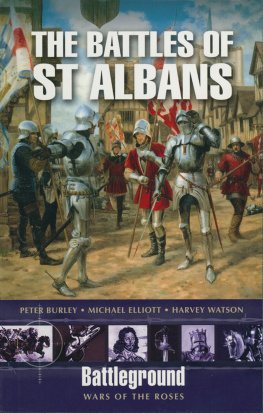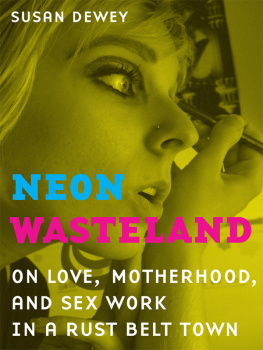KENTUCKY REMEMBERED
An Oral History Series
James C. Klotter
and
Terry Birdwhistell
GENERAL EDITORS
Tobacco Culture
Farming Kentuckys Burley Belt
JOHN VAN WILLIGEN
SUSAN C. EASTWOOD
Publication of this volume was made possible in part
by a grant from the National Endowment for the Humanities.
Copyright 1998 by The University Press of Kentucky
Paperback edition 2008
The University Press of Kentucky
Scholarly publisher for the Commonwealth,
serving Bellarmine University, Berea College, Centre
College of Kentucky, Eastern Kentucky University,
The Filson Historical Society, Georgetown College,
Kentucky Historical Society, Kentucky State University,
Morehead State University, Murray State University,
Northern Kentucky University, Transylvania University,
University of Kentucky, University of Louisville,
and Western Kentucky University.
All rights reserved.
Editorial and Sales Offices: The University Press of Kentucky
663 South Limestone Street, Lexington, Kentucky 40508-4008
www.kentuckypress.com
The Library of Congress has cataloged the hardcover edition as follows:
Van Willigen, John
Tobacco culture : farming Kentuckys burley belt / John van Willigen,
Susan C. Eastwood
p. cm.
Includes bibliographical references and index.
ISBN-10: 0-8131-2066-7 (hardcover : alk. paper)
1. Burley tobaccoKentuckyHistory. I. Eastwood, Susan C., 1954
II. Title.
SB273.V35 1998
338.1'7371'09769dcd21
ISBN-13: 978-0-8131-2066-9 (hardcover: alk. paper)
ISBN-13: 978-0-8131-9228-4 (pbk.: alk. paper)
This book is printed on acid-free recycled paper meeting
the requirements of the American National Standard
for Permanence in Paper for Printed Library Materials.
Manufactured in the United States of America.
| Member of the Association of American University Presses |
Contents
General Editors Preface
In the field of oral history, Kentucky is a national leader. Over the past several decades, thousands of its citizens have been interviewed. Kentucky Remembered brings into print the most important of those collections, with each volume focusing on a particular subject.
Oral history is, of course, only one type of source material. Yet by the very personal nature of recollection, hidden aspects of history are often disclosed. Oral sources provide a vital thread in the rich fabric that is Kentucky history.
This volume is the fourth in the series and focuses on one of the most important parts of Kentuckys past and presenttobacco culture. Kentuckys roots are deeply imbedded in the process of tobacco growing. Through the voices of Kentuckys tobacco farmers, Tobacco Culture explores the process of growing tobacco and the culture that has developed around that process.
Even as the national debate regarding tobacco rages throughout the country, John van Willigen and Susan Eastwood offer insight into the lives of those whose livelihood depends in large part on tobacco production. Oral history is at its best when it provides a forum for those most often ignored. Tobacco Culture helps provide that forum.
Preface
This work concerns the cultural world of tobacco farming. In it, we describe the knowledge and practices of the men and women of central Kentucky involved in producing white burley tobacco. Through personal experiences, we developed great respect for tobacco people and their craft. We were struck by the ironic contrast between what we saw as vilification of tobacco and tobacco producers in the media and the grace and dignity of these hardworking craftsmen. In effect, this book is a response to the assault on tobacco that may help people remember the cultural world antismoking proponents are attempting to dismantle. Tobacco people and their knowledge are valuable American cultural and economic resources.
Tobacco production takes place in a large, highly contested arena of politics, law, commerce, medical research, and consumer behavior. So, although this book focuses on production and marketing practices, to understand tobacco culture, we need to keep in mind the increase in concern about the negative health effects of tobacco use and the subsequent political transformations this causes. The cultural meaning of burley tobacco farming has slowly changed since 1964 when the surgeon generals report linking tobacco use with various health problems was published. This change in meaning is the biggest challenge facing tobacco people.
The narratives from which this book was formed are based on interviews with farmers and other people involved in tobacco production and processing in various counties in the heart of the burley belt in central Kentucky. Men and women from Bourbon, Fayette, Madison, Mason, Montgomery, Robertson, Rockcastle, and Scott counties were asked to narrate their experiences. These interviews, conducted from 1978 to 1992, document current practices and historic change.
This book represents a complex collaboration of cultural anthropologists and oral historians and grew out of separate projects conducted by each author. John van Willigens project documented a broad spectrum of social and economic life in a rural central Kentucky county to provide a context for planning and interpreting a social survey on the social relations of older people (van Willigen 1989). Tobacco production happens to be an important aspect of the social and economic life of the county where that research was done and, therefore, was documented extensively. Susan C. Eastwoods involvement began with a linguistic anthropology graduate research paper on the language of tobacco. This work was used as the basis for a thesis in cultural anthropology (Eastwood 1989). A number of Eastwoods relatives involved in tobacco farming in central Kentucky became participating narrators.
Using materials gained from our separate projects, we began the process of compiling a single text. This received impetus from the initiation of the Kentucky Family Farm Oral History Project (1990-94). Funded by the Kentucky Oral History Commission, this project allowed additional individuals to be interviewed by Andrea Allen and Sonja Anglin. We thank Kim Lady Smith, director of the Kentucky Oral History Commission, for her help with and encouragement of this project.
Tapes from the Oral History Project at the University of Kentucky library and the Commonwealth of Kentucky Oral History Commission also were integrated into the project. The breadth of data on tobacco production was increased further through interviews with farmers and others carried out by John Klee of Maysville Community College, who has an extensive knowledge of the tobacco production process. Deposited at the Kentucky Historical Society and available to the public, they provided a useful supplement to the interviews already obtained. A series of taped monologues by Paul Carraco, a farmer and warehouse owner from Carrollton, Kentucky, was also useful. Use of these tapes was facilitated by Jeffery Suchanek and Terry Birdwhistell of the Margaret I. King Library at the University of Kentucky.













